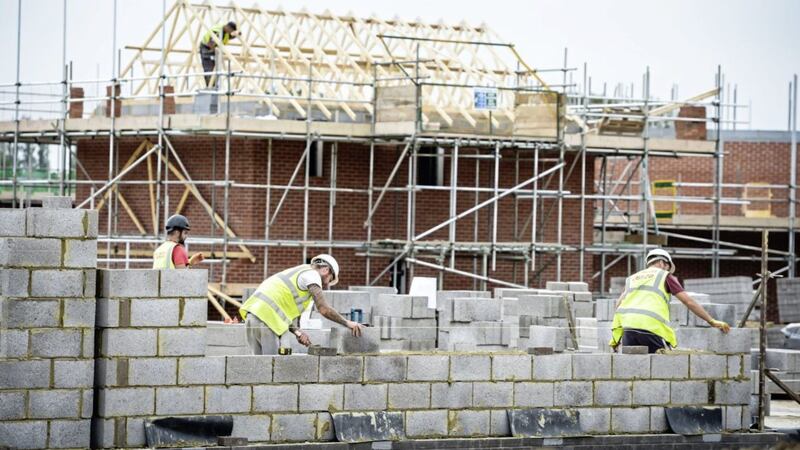CONSTRUCTION activity in the north is on the wane, with the ongoing lack of a devolved government a key factor, new research shows.
The latest RICS and Tughans Northern Ireland Construction and Infrastructure Market Survey has revealed that activity in the sector continues to decline in every area, bar private house building.
The latter is the shining light in the data, with surveyors in the last quarter reporting rising workloads in house building at the highest rate in a decade.
In spite of this small beacon of positivity, the north remains the only region in the UK where overall workloads are reported to be contracting.
Infrastructure, public housing and public-non housing subsectors continue to be in marked decline, with respondents highlighting the continued absence of a Northern Ireland Executive and Assembly as a major barrier to growth, hindering the allocation of funding for projects.
In addition, Brexit uncertainties are perceived to be affecting investment, with private industrial and private commercial workloads falling.
Looking ahead there is some optimism, however, as the 12-month forecast in terms of employment and workloads has risen, albeit the latter is lower when compared to the wider UK.
Jim Sammon, RICS Northern Ireland construction spokesman said there the performance of private housing market is not reflective of the sector as a whole, which is being held back by political uncertainty.
"Construction activity is no doubt affected by ongoing political instability, which has had a considerably negative impact on public works in particular," he said.
“The political landscape also isn’t conducive to attracting investors who want to see stable government. It also doesn’t help when firms are attempting to encourage the brightest and best to stay and work in Northern Ireland."
David Jones, head of real estate at Tughans added:
“Undoubtedly, one of the main external factors affecting the construction sector is the current political landscape. Projects and works that require the allocation of funding cannot be progressed, and the situation has a knock-on effect on other areas, leading to increased caution when it comes to investment decisions.
“While private housing continues to be a shining light in Northern Ireland construction, overall the sector is facing a slow-down and we would hope the optimistic outlook for the year ahead is realised, with growth returning to private commercial, infrastructure and other public works."








